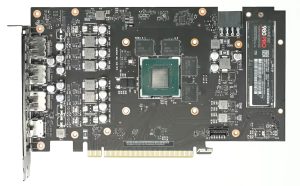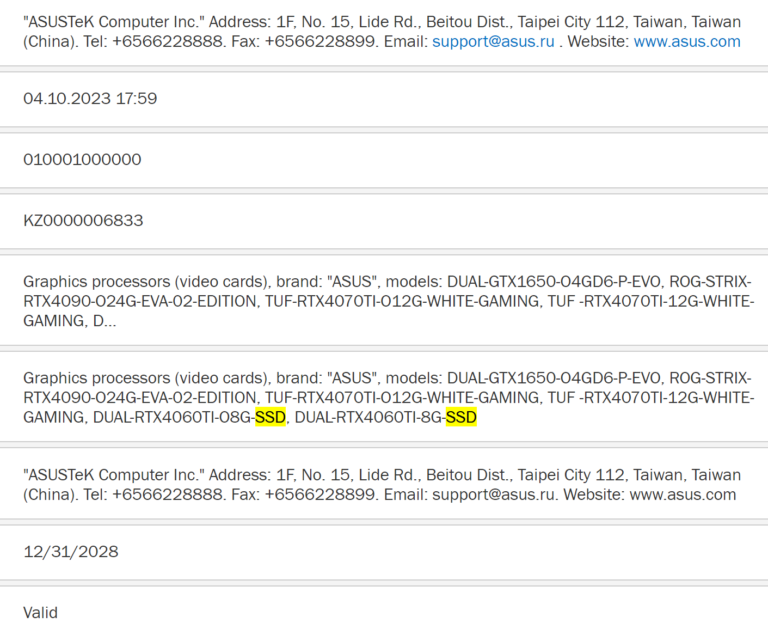ASUS GeForce RTX 4060 Ti with built-in SSD slot to launch soon
ASUS is reportedly set to launch its RTX 4060 Ti graphics card following the recent unveiling of a prototype a few weeks ago. The company has figured out that certain graphics cards, which don’t fully utilize all 16 lanes of the PCIe interface, can efficiently allocate the remaining lanes for SSD support. This innovation could broaden storage options for users who would otherwise rely on motherboard slots.
The initial graphics card to employ this technology is the RTX 4060 Ti DUAL graphics card, which is said to come in two variants: one with factory overclocking and one without, as indicated by the EEC (Eurasian Economic Commission) filing:
In July, ASUS China showcased these graphics cards equipped with Samsung 980 PRO 2TB SSDs, which were mounted on the backside of the graphics card. The PCB’s design enables the storage to be directly attached to the graphics card’s cooler. This means that it not only utilizes the GPU as an M.2 drive adapter but also harnesses the card’s cooler for efficient cooling.
SUS is yet to fully disclose the details of how this technology works. It could potentially require a dedicated ASUS motherboard or, what would be a much better option, be offered as a plug-in option compatible with any motherboard. However, the integration of this storage solution will require ASUS to make adjustments to the thermal and power aspects of the graphics card, likely resulting in increased power consumption.


Based on initial demonstrations, the SSDs integrated with the RTX 4060 Ti card were operating at temperatures approximately 10°C lower and were capable of delivering nearly the full speed of the PCIe Gen4x4 interface, reaching of up to 6.8 GB/s of sequential read.
The SSD variant of the RTX 4060 Ti DUAL graphics card could potentially have limited availability restricted to specific regions. So far, ASUS Russia is the only entity that has shown plans for the card’s introduction to their market. A quick lookup of the product code (DUAL-RTX4060TI-O8G-SSD) does not reveal any indications of the graphics card being available in other regions at this time.

